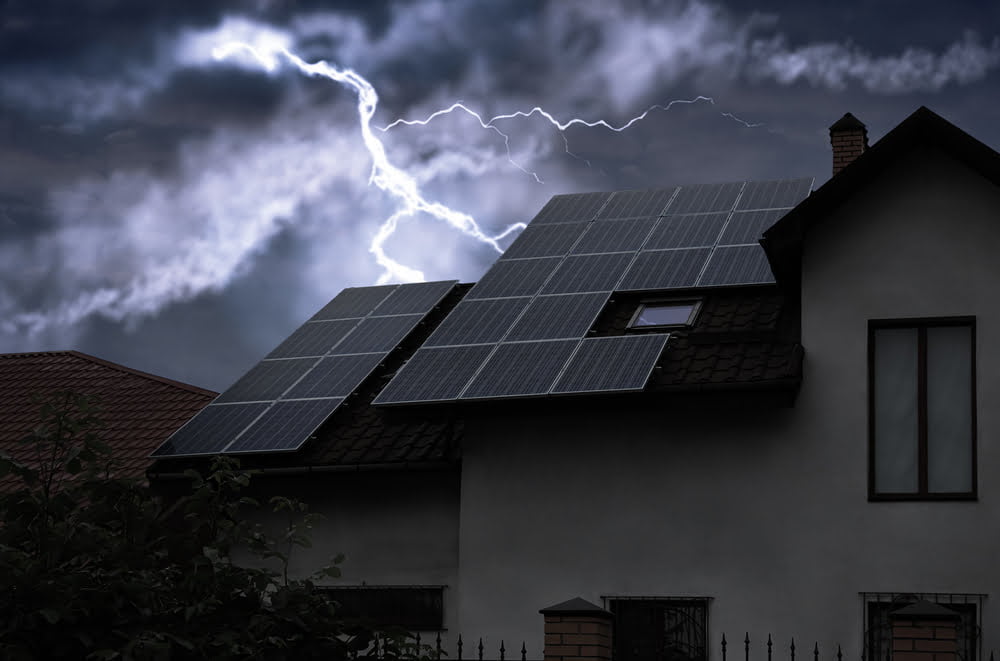
Like any other realm that's increased in popularity in recent years, there are some unfortunate myths out there about solar panels, solar batteries and this entire realm of products. Maybe the most frustrating form of misconception in the solar world: The idea that solar panels will not function well (or at all) in certain distinct weather conditions.
At Intermountain Wind & Solar, we're here to not only offer a wide range of residential and commercial solar solutions, but also to provide important information and expertise on our products -- plus to help debunk these silly misconceptions that have sadly spread around some circles. Here are a few of the most common weather-related myths when it comes to solar panels, plus the proper information in each of these areas.
This is the first and likely the most common misconception out there regarding solar panels and weather, and it traces back to a simple misunderstanding: Those who think solar power is based off heat. In reality, it's based off the sun's UV rays -- the actual temperature is almost completely irrelevant.
In fact, some research has shown that panels may even perform slightly better in cold temperatures, because they're receiving less sunlight in warmer climates -- meaning that the panels are not working as hard to catch light. In addition, panels in super-warm climates may warm up too much during a hot summer day, producing less power from the same amount of light.
Another common myth is the idea that you can't get solar panels in snowy areas because the snow will simply cover them up and ruin their ability to produce power. However, this is not true either, particularly if you are using a quality system that's designed for harsh conditions.
Panels are meant to handle extreme conditions, including snow and sub-zero temperatures. In fact, if they're installed properly, they will play a role in melting snow and ice -- which is actually quite common in places like Sweden, where solar panels play a key role in this process. Snow melts much faster on a roof with solar panels than on one without them, and will continue to pick up UV light even in snowy conditions. There are even forms of carport solar installations designed to keep people protected from the elements.
Because of their glass-like material that's visible from the ground, some mistakenly assume that solar panels are fragile. That's not the case, though. Solar panels are actually one of the sturdiest forms of outdoor equipment on the market -- they're designed to handle everything from lightning strikes to extreme wind conditions that would destroy most other pieces of machinery or property.
The glass is designed to absorb UV light and easily resist scratches, while the panels are coated in a protective material that makes them quite durable even to hail or lightning strikes. The metal frame is also made from sturdy aluminum and steel, which simply means it's built to last -- no matter what conditions your local area might bring.
In addition, did you know that all solar panels must be tested extensively in this area? They're each put through the wringer in the factory before they're even shipped out to customers, so you can be sure that you'll easily get at least 25 years of power from a properly installed solar panel system -- even if your area experiences hail or similar risks.
As we went over above, solar power generated has very little to do with actual temperature, and everything to do with light -- for this reason, wind doesn't have much of an impact on panels either. In fact, the only area you really need to be concerned about with wind is ensuring your panels are properly attached to your structure; as long as you're working with quality pros like ours, this won't be an issue at all.
As far as actually impacting your amount of power generated, wind isn't a factor.
While most of the myths we've gone over here are those that undersell the value of solar panels in even extreme weather conditions, it's also important to be realistic within this realm. The simple truth: Not all solar panels are created equal.
The difference between a cheap system and a reliable one that can handle harsh weather conditions is in the materials used to build them, the way they've been designed and the quality of labor you put into installing it. In other words, when you pay for solar panels from a company like ours, you're not just getting equipment -- you're getting a full installation and maintenance plan that's designed to work in your area.
For example, we use industry-leading inverters that have been specifically designed for harsh conditions -- which are backed up by top of the line warranties that go along with them. The system you buy should be built to handle whatever your climate throws at it, no matter how extreme the conditions might be -- and our warranties speak to our confidence in this promise.
For more on debunking the common myths out there surrounding solar panel usage in various weather conditions, or to learn about any of our solar panels, our Tesla Powerwall battery backup or any of our other services, speak to the staff at Intermountain Wind & Solar today.





"All of the photos on this website are of real projects that Intermountain Wind & Solar has designed and installed.
We are proud to show off and stand behind our work."